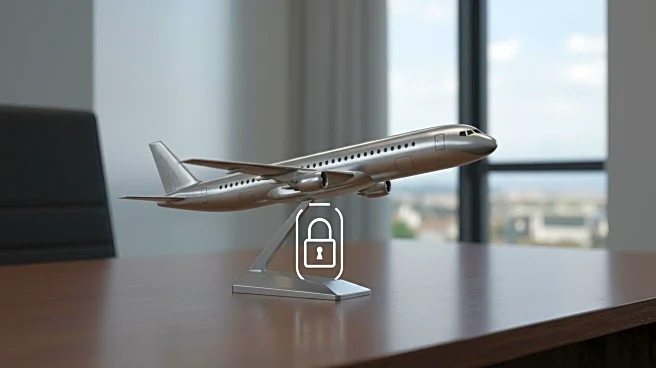What's Happening?
Air Canada, the largest airline in Canada, is set to cancel several dozen flights starting Thursday, leading up to a weekend lockout of flight attendants. This action follows a vote by the flight attendants' union to strike, which has prompted Air Canada to suspend operations gradually over three days, culminating in a complete cessation of flights by Saturday. The airline has warned that even if a deal is reached quickly, it could take up to a week to fully resume operations. The lockout affects Air Canada and Air Canada Rouge flights, but not Air Canada Express flights operated by regional partners. The Canadian Union of Public Employees, representing Air Canada flight attendants, issued a strike notice, leading to Air Canada's 72-hour lockout notice effective August 16. Nearly all union members voted to strike, citing issues such as unpaid work and wage disputes.
Why It's Important?
The lockout and flight cancellations by Air Canada could significantly impact air travel, especially during the peak summer season. Air Canada flies approximately 130,000 passengers daily, including 25,000 Canadians returning home from abroad, who may be stranded due to the lockout. The airline's extensive network, including nearly 430 daily flights between Canada and the U.S., means the effects will be felt internationally. Air Canada is part of the Star Alliance, which includes major airlines like United Airlines and Lufthansa, potentially affecting connecting flights and services. The disruption comes at a time when other carriers are already operating at full capacity due to high summer travel demand, complicating efforts to rebook affected passengers.
What's Next?
Air Canada plans to accommodate disrupted passengers by rebooking them on competitor airlines, although this may be challenging given the limited availability of seats during the summer travel peak. The airline has also offered refunds or the option to rebook travel for a later date without change fees. The duration of the lockout remains uncertain, as negotiations between Air Canada and the flight attendants' union have stalled over pay and unpaid work issues. Canadian Minister of Jobs and Families, Patty Hajdu, has urged both parties to return to the bargaining table to resolve the dispute and minimize inconvenience to travelers.
Beyond the Headlines
The labor dispute highlights broader issues within the airline industry regarding fair compensation and working conditions for flight attendants. The union's demands for better pay and recognition of unpaid work reflect ongoing challenges in balancing employee rights with operational demands. The situation also underscores the vulnerability of air travel systems to labor disputes, which can have widespread ripple effects on international travel and economic activities.








